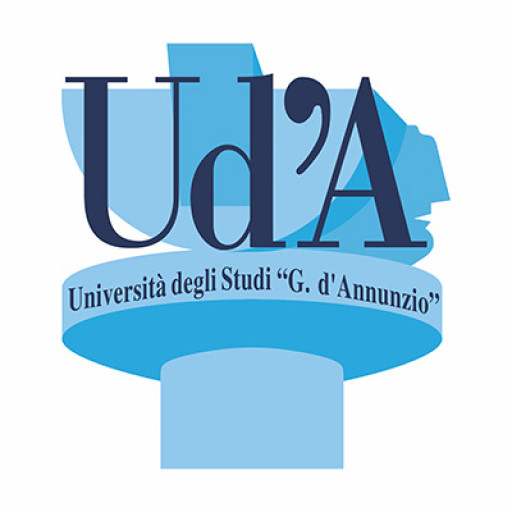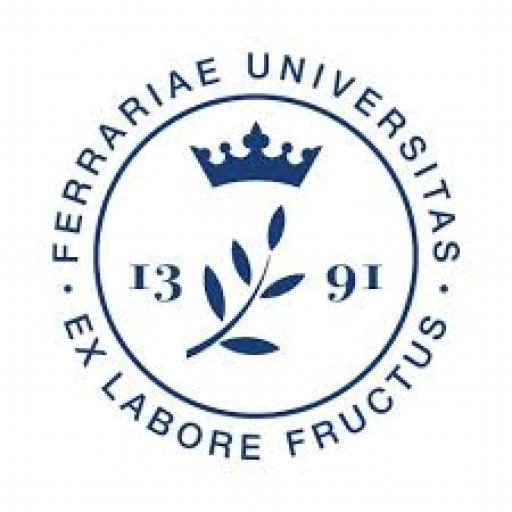Photos of university / #monash_uni
పరస్పర వివాదాల ಪರಿಹారంలో నైపుణ్యాలు అవసరం అనుకునే వారికి, మానాష్ విశ్వవిద్యాలయపు వివాద పరిష్కార డిగ్రీ ప్రోగ్రామ్ అత్యుత్తమ అవకాశం సరైన ఎంపిక ఇది. ఈ ప్రోగ్రామ్ ద్వారా విద్యార్థులు వివాదాలు ఎలా పరిష్కరించాలో, న్యాయ శాస్త్రం, నైత్యశాస్త్రాలు, అర్ధశాస్త్రాలు, చట్టాలు, మరియు నిబంధనలు ప్రాముఖ్యత ఇవ్వబడతాయి. వివాదాల వివరణ, నేర్చుకునే విధానం, మరియు దానిని ఎలా సమర్థంగా నిర్వహించాలో ఈ కోర్సు వివరించబడుతుంది. విద్యార్థులు వివాదాల మధ్య సంతోషకరమైన పరిష్కారాలను సాధించడానికి అవసరమైన నైపుణ్యాలు పొందరు, వివాదాలను దృష్టి పెట్టకుండా, చట్టబద్ధమైన విధానాలలో నైపుణ్యాలు అభివృద్ధి చేయగలుగుతారు. ఈ డిగ్రీ ప్రోగ్రామ్ అనేది వివాదాల పరిష్కారంలో పనిచేయాలనుకునే వృత్తి నైపుణ్యుల కోసం రూపొందించబడింది, ఇది వివిధ రంగాలలో ఉన్న నిపుణులకు, మాధ్యమిక, న్యాయవృత్తులు, కార్పొరేట్ చట్టాలు, పౌర చట్టాలు, మరియు ఇతర బిజినెస్ సంబంధిత తరగతులకు అనుకూలంగా ఉంటుంది. ఈ కోర్సులో వివిధ తరగతులు, వర్క్షాప్స్, ప్రాక్టికల్ సెషన్లు, రిసెర్చ్, మరియు ఇంటర్న్షిప్స్ ఉన్నాయి, ఇవి విద్యార్థుల ప్రాక్టికల్ అనుభవాన్ని పెంచుతాయి. ఈ ప్రోగ్రామ్ పూర్తి చేసిన తర్వాత, విద్యార్థులు వివాదాలను సమానంగా, న్యాయబద్ధంగా పరిష్కరించగలుగుతారు, ఇవి వివాదాల పరిష్కారంలో ముఖ్యమైన రీతులు, న్యాయ ప్రక్రియలు, ఒప్పందాలు, మరియు మంతనాలు గురించి అభ్యసించడంలో అనుభవం పొందుతారు. మానాష్ విశ్వవిద్యాలయం ఈ కోర్సును ఆది తరగతిలో న్యాయ వృత్తి, వ్యावసాయ, ప్రభుత్వ రంగాలు మరియు వ్యక్తిగత సలహాల కోసం అందుబాటులో ఉంచుతుంది. ఇది విద్యార్థులకు పరిశోధన, విచారణ, న్యాయ ప్రక్రియలపై సుదీర్ఘ అవగాహన, మనోభావాలు, ధైర్యం, మరియు ప్రసంగ నైపుణ్యాలను అభివృద్ధిగా చేస్తుంది. వివాద పరిష్కారంలో నైపుణ్యాలను అభివృద్ధి చేయాలనుకునే ప్రతి విద్యార్థి ఈ ప్రోగ్రామ్ ద్వారా తమ కెరీర్, వ్యాపార, లేదా వ్యక్తిగత అవసరాలకు అనుకూలమైన పరిష్కారాలను పొందవచ్చు, తద్వారా వారు సమాజంలో విస్తృత స్థాయిలో ప్రభావం చూపగలుగుతారు.
The Master of Dispute Resolution at Monash University is a comprehensive program designed to equip students with the essential skills and knowledge required to effectively manage and resolve conflicts across various professional settings. This program delves into the theories and practice of dispute resolution, including negotiation, mediation, arbitration, and other alternative dispute resolution (ADR) methods. Students will explore the legal, ethical, and procedural aspects of resolving disputes, gaining a thorough understanding of the frameworks that underpin dispute management in both domestic and international contexts. The curriculum emphasizes practical applications, offering hands-on training through simulated mediation sessions, negotiation exercises, and case studies, enabling students to develop their interpersonal and analytical skills.
Throughout the program, students will study the dynamics of conflict, communication techniques, and the psychology involved in dispute resolution processes. The courses also cover substantive areas such as contract law, employment law, and commercial law, providing a well-rounded legal foundation relevant to dispute resolution professionals. In addition, the program encourages critical thinking and ethical decision-making, preparing graduates for challenging situations that require impartiality, strategic thinking, and cultural sensitivity.
Students have the opportunity to engage with industry professionals through guest lectures, workshops, and internships, fostering practical insights and network-building within the dispute resolution community. The program is suitable for those seeking careers as mediators, arbitrators, legal practitioners, or consultants specializing in dispute management. It aims to produce graduates who are capable of designing tailored dispute resolution strategies, facilitating negotiations, and advising organizations on dispute prevention and resolution techniques. By completing this program, graduates will be well-positioned to contribute effectively to resolving conflicts in legal, business, governmental, and community settings.
A mentor Honours degree (or equivalent) in a relevant discipline, including education, psychology, education, human resources, business administration, industrial relations, communications or another relevant subject, as determined by the faculty, with a minimum credit average. Or A bachelor degree (or equivalent) plus whether graduate diploma (or equivalent) in Legislation or a cognate field including instruction, psychology, psychology, human resources, business administration, industrial relations, communications or another relevant subject or a graduate certificate (or equivalent) in Legislation or a cognate field including instruction, psychology, psychology, human resources, business administration, industrial relations, communications or another relevant subject according to the faculty. Or A bachelor degree (or equivalent) in a relevant discipline, including education, psychology, psychology, human resources, business administration, industrial relations, communications or another relevant subject plus adequate applicable work-based experience or professional learning to offer the equivalent of a bachelor honours level on one of those areas, as determined by the faculty. Applicants will be assessed on their full academic record, with a credit average (or equivalent) preferred. As a general rule, students who don't have a credit are counting upon relevant work experience to satisfy entry requirements will need to have worked for at least two decades, although the necessary period might be shorter where the work experience has been supplemented by other learning.
The Monash University Dispute Resolution program offers a comprehensive overview of the various financial aspects associated with studying at the institution. While specific details about the exact tuition fees for the Dispute Resolution program are not publicly available, prospective students can expect that the costs will vary depending on the level of study (undergraduate or postgraduate) and residency status (local or international students). Generally, tuition fees for postgraduate courses at Monash University tend to range between AUD 40,000 and AUD 60,000 per year for international students, whereas domestic students may benefit from substantially lower fees due to government subsidies and support schemes.
In addition to tuition fees, students should consider other financial obligations including student services and amenities fees, administrative costs, textbooks, and learning materials. Monash University provides several financial aid options, including scholarships specifically tailored for law and dispute resolution students, which can significantly offset the costs of study. These scholarships may be awarded based on academic merit, financial need, or other criteria, and application procedures differ depending on the specific award.
International students are also encouraged to explore various financial support options such as external scholarships, sponsorships, and student loans available through their home countries. Monash University offers on-campus employment opportunities for international students, which can supplement their income during their studies. Additionally, students should budget for living expenses including accommodation, meals, transportation, health insurance, and personal expenses. Melbourne, where Monash's Clayton campus is located, is known for its relatively high quality of life, but living costs can be substantial, and careful financial planning is advisable.
For domestic students, the Australian Government'sHELP system provides income-contingent loans that can assist with higher education costs, reducing the immediate financial burden. International students are usually required to pay fees upfront or via payment plans, depending on the arrangements with the university.
Overall, prospective students interested in the Dispute Resolution program at Monash University should thoroughly research the current fee schedule on the university’s official website and consider applying for financial aid opportunities. Planning ahead for all associated costs will ensure a smooth and financially manageable educational experience at Monash University.
Dispute Resolution at Monash University offers students a comprehensive understanding of the processes and techniques involved in resolving conflicts across various contexts. The program is designed to equip graduates with the skills necessary to manage and resolve disputes effectively, whether in legal, commercial, community, or international settings. The curriculum covers a broad range of topics, including negotiation, mediation, arbitration, conciliation, and the legal frameworks that underpin dispute resolution practices. Students are exposed to both theoretical foundations and practical applications, frequently engaging in simulations, case studies, and role-playing exercises that enhance their problem-solving and communication skills.
The program often emphasizes interdisciplinary learning, drawing insights from law, commerce, and social sciences to prepare students for complex dispute scenarios. It aims to develop critical thinking, ethical judgment, and cross-cultural understanding, reflecting the diverse nature of dispute resolution practices globally. Monash University is renowned for its research and expertise in dispute resolution, and students benefit from access to experienced academics, industry practitioners, and a network of professional contacts. The program may also include internships or placement opportunities, allowing students to gain real-world experience in law firms, mediation centers, corporate legal departments, or international organizations.
Graduates of the Dispute Resolution program are well-positioned to pursue careers as mediators, arbitrators, conciliators, legal advisors, or in roles within government agencies or multinational corporations. They may also find opportunities in dispute management consulting, policy development, or academic research. The program is suitable for individuals aiming to enhance their conflict management skills, deepen their legal knowledge, or transition into dispute resolution roles from other professional backgrounds. Monash University’s strong reputation, combined with the practical focus of the program, ensures that graduates are highly competitive in the evolving field of dispute resolution.
Overall, the program provides a rigorous, flexible educational pathway for those interested in fostering peaceful, equitable, and efficient resolutions to conflicts across various sectors, reflecting global trends toward alternative dispute resolution methods and the increasing importance of collaborative, non-adversarial processes in contemporary society.










